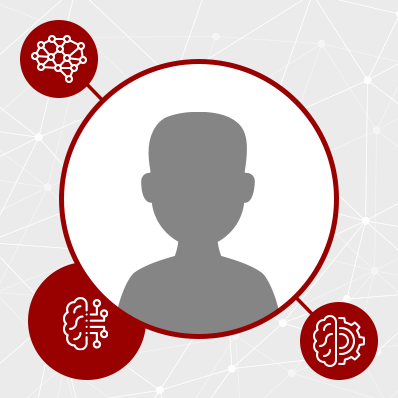Aziz-Zadeh, Lisa
Associate Professor of Occupational Science, Psychology and Neurology
The Center for the Neuroscience of Embodied CognitionWe explore how rudimentary sensory-motor areas may be intrinsically involved in processing aspects of higher cognition such as language, thought, emotions, empathy, and social communication. We study both typical populations and autism, using MRI and behavioral studies, also integrating microbiome research.
Baker, Laura A.
Gene-environment interplay in human behavior, including personality, cognitive and social development. Rich datasets from longitudinal twin study of risk factors for externalizing behavior problems available for analysis.
Bonaguidi, Michael
Associate Professor of Stem Cell and Regenerative Medicine
Cognitive impairment (CI) is a burdensome neurological condition that occurs during aging, Alzheimer’s disease (AD), and is a common co-morbidity in many neurodegenerative diseases, including epilepsy. Unfortunately, CI prevalence continues to accelerate due to population aging and emerging therapies only slows CI by a few months. Our research seeks to develop regenerative medicine and provide longer-lasting benefits to CI through brain restoration. We are establishing endogenous brain regeneration as a therapeutic approach for CI in pre-clinical animals and people by (1) investigating neural stem cell behavior in aging, AD and epilepsy, (2) developing computational/AI drug discovery tools for precision medicine to treat CI, and (3) partnering with physicians for human research and clinical trials to translate our findings.
Brocas, Isabelle
I am a Professor at the University of Southern California and the co-director of the Los Angeles Behavioral Economics Laboratory (LABEL) and the Theoretical Research in Neuroeconomic Decision-making (TREND) Institute. My research revisits standard theories of decision-making and aims at better understanding how people make choices, what motivates them and what cognitive limitations prevent them from making rational choices.
Coricelli, Giorgio
Professor of Economics and Psychology
We study human behaviors emerging from the interplay of cognitive and emotional systems. Our research agenda includes two main projects. The first one concerns the role of emotions in decision making, and the second is aimed at investigating the relational complexity in social interaction. Our objective is to apply robust methods and findings from behavioral decision theory to study the brain structures that contribute to forming judgments and decisions, both in an individual and a social context.
Ichida, Justin
Associate Professor of Stem Cell Biology and Regenerative Medicine
We are interested in understanding mechanisms underlying neurodegenerative and neurodevelopmental diseases. We also aim to develop new therapeutic strategies for these disorders.









